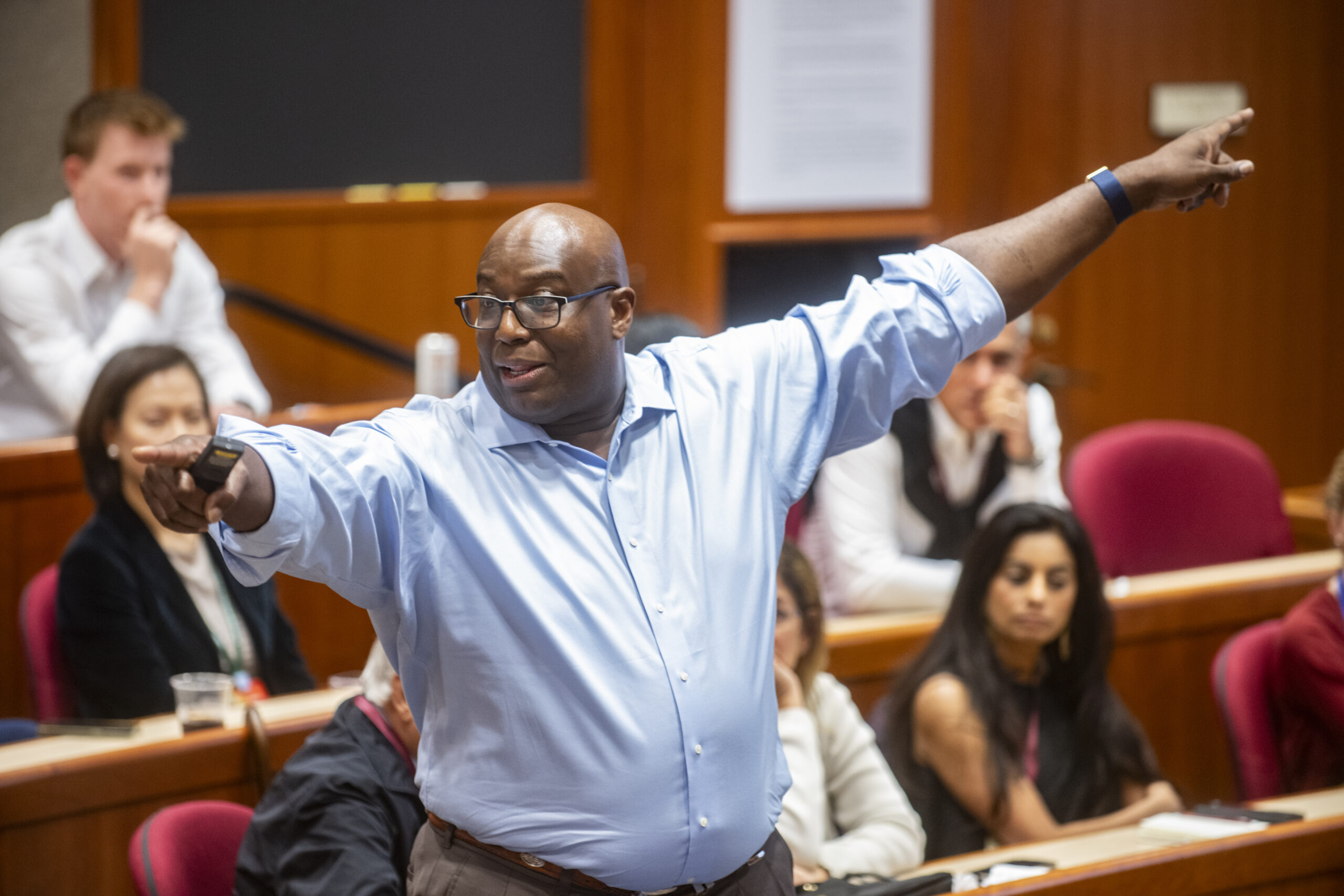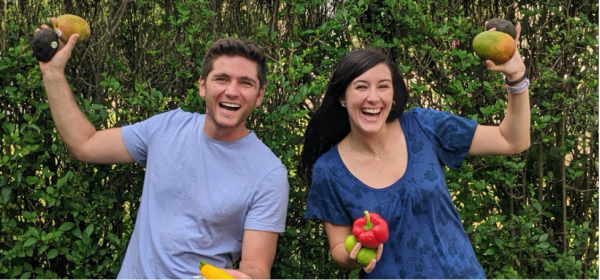

The HBS Summer Fellows Program enables students to apply their classroom training as they explore career opportunities in roles or regions where compensation is generally lower than the traditional MBA level. This summer, we are connecting with some of our 59 Social Enterprise Summer Fellows, who are working around the world to develop skills and knowledge while having significant responsibility and high impact.
What are you working on this summer?
This summer, we are founding a nutritional equity startup called Snappea. Across US cities, far too many income-constrained, working families struggle to access affordable and healthy foods. Grocery store products are often too expensive, many corner stores lack healthy options, and even when nonprofits offer free or low-priced food, their distribution windows are often during working hours. We believe that there is a better way for families to put healthy meals on their table and get the nutrition they need to succeed at home, at work, or at school.
By delivering food through a low-cost hub distribution network, Snappea will meet families where they are, at the hours that are most convenient for them, and at a price point they can afford. In doing so, we aim to reduce the time burden that families face when making a transition to healthier eating and improve community health.
How did your idea originate?
Noah: Coming into HBS, I knew that I wanted to set myself up for a career focused on improving economic mobility in the US. While participating in my first-year advisory group on ‘The Society We Need’, my peers noted that “economic mobility” is an expansive issue and challenged me to think about what specific root causes of immobility I am interested in. No matter which root cause we brainstormed (education, healthcare, etc.), I found that almost everything was somehow tied to having access to nutritious food. Having previously consulted in the grocery space, I have seen how the costly–and often inefficient–food supply chain can translate to prices that prohibit food access. Following those discussions, I became passionate about finding ways that we can better structure our food system to provide equal opportunity.
Courtney: Working on WASH (water, sanitation, hygiene) projects in very rural Maya communities in Guatemala really opened my eyes to both pervasive health inequities due to diet and gender inequities due to time spent by women cooking and gathering clean water for the family. Coming from a single mother household where we could not afford healthy meals or the time to prepare them, I know how families here in the US struggle with similar health and gender inequities. When Noah and I connected about his concept, reflecting on these experiences helped the whole idea come together.
Why did you choose this internship for the summer?
Courtney: I chose this internship for the summer for two main reasons: I wanted to work in the social impact space and I wanted to learn how to build a company from the ground up. I am pivoting my career to social impact and I wanted to get into the community here to learn more about the challenges real families are facing every day in an effort to find a way to change that for the better. Food as a major player in health is dear to my heart, and felt like the perfect way to gain experience and learn while working towards crucial improvements to health in vulnerable communities.
Noah: Similar to Courtney, I see this venture as a perfect opportunity to explore the social impact space, work with communities, and understand how social entrepreneurs can drive systems change. In addition, having worked at both a large consulting firm and an enterprise on the cusp of scaling, I hoped to use this summer to test whether I can thrive in a true start-up environment.
What are your goals for this summer?
Courtney: My goals for the summer are to learn as much as possible from Noah’s complementary expertise areas, particularly around strategy development and structured frameworks to break down large, complex problems and industries, and to understand how my strengths can apply to running organizations for social impact and further identify areas for improvement to seek ways to improve those skillsets. I hope that the solution we’ve identified with Snappea will ultimately be successful, and we will be able to fully pilot and advance the work towards bringing this solution to market.
Noah: At a high level, my main goals for the summer are to design a concept that truly stands to improve people’s lives and build a self-sustaining business model that delivers impact. As for my personal career goals, I am hoping to learn from Courtney how to structure and roll out operations, as well as how to best collaborate with communities.
How has your MBA skillset prepared you to be successful in this role?
We each recognized coming into this summer that we had very complementary skillsets from the expertise we built prior to attending HBS. Noah’s background in consulting and entrepreneurship and Courtney’s experience with engineering and operations management have given us both very different strengths and exposed us to very different processes. As a result, we’ve been able to fill in a lot of each other’s gaps, provide each other with huge development opportunities, and challenge each other with different ways of thinking.
In terms of what we’ve applied from the MBA, it has been really inspiring–and a bit surprising–to see just how often we have put the concepts from our first year of HBS to use! All of the frameworks from Marketing have helped us be clear and strategic during workshops on target market definition and value proposition clarification, our new vocabulary from Technology & Operations Management comes in handy each time we are looking at the current market’s value chain, and it feels like we reference a case from The Entrepreneurial Manager each time we discuss our founder relationship, hypothesis testing, or business model development.
How has the summer influenced your thinking on future involvement in social enterprise?
Courtney: This summer has shown me how incredible humans can be when they set their mind to something that helps make the world better in some way, small or large. Working with so many different organizations that believe in business for the betterment of society has been inspiring. I will certainly continue to explore the ways business and society work together for positive outcomes.
Noah: I have been really encouraged by the degree to which the public officials, researchers, and community leaders we have spoken with have been enthusiastic about the potential of cross-sector collaboration. We have already been exposed to a number of examples in which efforts by private business, city government, and NGOs come together to create better societal outcomes, and it truly feels like we are in the middle of a paradigm shift where purpose and profit do not have to be at odds.
For more information on Snappea, please reach out to cirwin@mba2022.hbs.edu and nlizerbram@mba2022.hbs.edu.